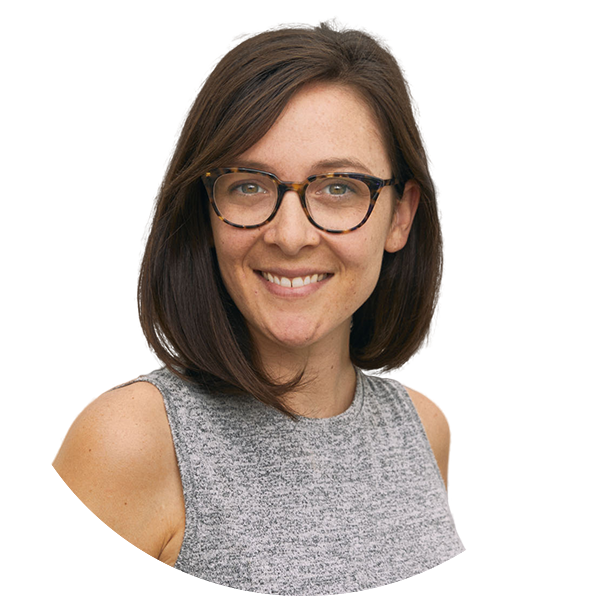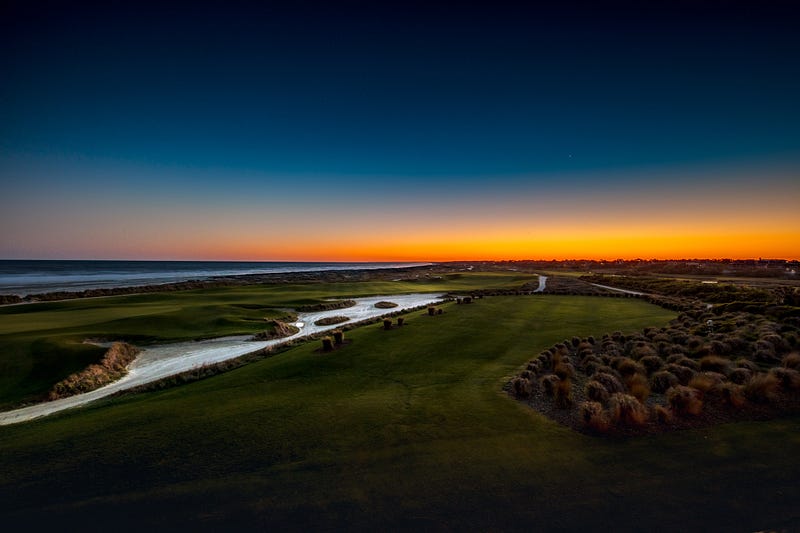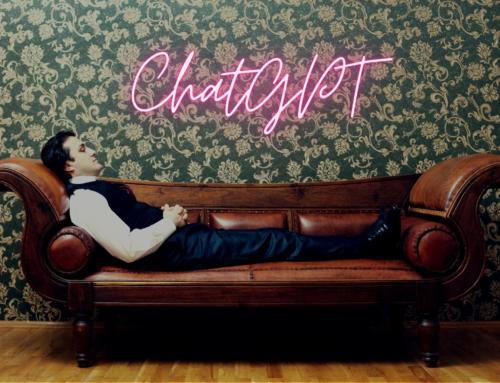The underrepresentation of women in tech is, quite frankly, abysmal.
13% of the global Fortune 500 are women, according to Tammy Moskites, Managing Director at Accenture. “That’s not just CISOs. That’s CISOs, CIOs, and senior executives such as a VP in the technology arena. It’s still a very, very small amount that equates to about 65 companies out of the 500.”
In insurance, women make up more than half of the workforce — nearly 61% — but only occupy 12% of top corporate officer positions.
For women, insurtech is no different.
Carey Anne Nadeau, founder and CEO of Open Data Nation (ODN), shared that one of her biggest challenges in insurtech was feeling like she had to be accepted by a close-knit family. “I feel like the girlfriend that the favorite son brought home,” she says.
In our second conversation with Carey Anne, we dig a little deeper into the challenges she faces in the industry as an innovative woman in insurance. We talk about her commitment to diversity and inclusion, claiming her own space, her favorite podcast episode, and more.
You can read part one of our conversation with Carey Anne here. We learned about ODN’s founding story, the importance of city data, her innovative marketing techniques, and the power of AI in insurtech.
(My colleague Cybele Ramirez interviewed Carey Anne.)

CR: What challenges are you facing in the Insurtech space?
Carey Anne: Today the system is, I don’t want to call it broken, but in need of some modernization. It was built, you know, pretty much in the 50s and then revised incrementally from there. There are institutional biases baked into the way that you get a price for auto insurance today. For example, if you have a poor credit score, about 53% of your price is really predetermined by your credit score. And for people of color, for immigrants, for millennials with a ton of student debt, credit scores are not performing in the way that they used to. Our world is really becoming much more diverse, and the way we use credit is changing.
The basis and fundamentals on which auto price was built are starting not to have as much power as they once did when families were more homogenous looking, the workforce was a little bit more homogenous looking, and a bunch of white men around a table we are pricing auto for other white men that looked like them. The world does not operate like that anymore.
So, there’s a huge need to revisit the fundamentals of how we price auto and reconsider how we make it much more equitable, how we make sure that folks aren’t being disproportionately discriminated. Also, how to meet customers where they’re at today by offering them risk management solutions that can help and that they want that. They want to know where unsafe intersections are so that they can avoid them.
“As the values of our society change, the representation in our industry has not, and it’s a real market opportunity to recognize that if you have folks who have different lived experiences, you can create products for those people.”
CR: How has your experience helped you approach gender equality and inclusion at ODN?
Carey Anne: This is an issue that I’m a strong advocate and voice in the insurance industry for.
We’re about to release a report in the coming weeks that looks at the top 100 startups, 5% of which have either a founder or CEO, which are female, which is well, uh, sadly on track with a lot of other industries, but also well below many others.
In terms of representation, I am particularly vocal about carriers and established players looking at startups who have diverse founders for startup accelerators and incubators who do facilitate a lot of introductions to be mindful about diversity. I think it’s incredibly important because as the values of our society change, the representation in our industry has not, and it’s a real market opportunity to recognize that if you have folks who have different life experiences, you can create products for those people. You can modify the delivery of your services to meet people where they’re at. But if you’re bringing in folks that look like you, who still think in a very established, old world order sort of way, you’re missing out on a very strategic advantage that you could be building as a CEO, exposing yourself to these outside perspectives.
There is a historical legacy here. We wonder why women aren’t in insurance, and why people of color are not in insurance. I am a strong advocate of saying boldly: because the products and the experience that they’ve had with the products that we sell are not good. The most obvious example is redlining in the 50s against black people in urban neighborhoods. You wonder why there aren’t more black male executives or black female executives in insurance, well, because we’ve damaged a relationship that we had with communities of color and we don’t confront the fundamental underpinnings of the values of the products that we sell will continue to perpetuate those values.
If we are honest about diversity, (1) it’s an opportunity to grow strategically. (2) It’s an opportunity to revisit our values and modernize them to match the demography of today in this reality that we live in a much more diverse world; different types of people — people of color, immigrants, women — are in the workforce and need new products and insurance. So, I am a particularly vocal advocate on this subject, and I think it’s important to share my experience because it is firsthand experience, because I have a voice, because I have a company where I can do and lead by example. We take it very seriously at ODN.
“Well, the first thing I want to be mindful of when I do this is that I’m not redlining, that I’m not taking what was a system that disproportionately discriminates and makes it worse.”
CR: Can you talk more about ODN’s core principles are and how you chose the principles?
Carey Anne: Our core principle at heart is to leave the world off better than we found it.
We are a certified benefit corporation, a B corporation, which is a for-profit entity, but we add some responsibilities to our board to be socially responsible. Our investors are required to evaluate the performance of a quantity decent, some measures of our environmental and social responsibility as well, and that really bleeds through every component of the product that we build.
We build an artificial intelligence model that predicts where car crashes are likely in the next 30 days. Well, the first thing I want to be mindful of when I do this is that I’m not redlining, that I’m not taking what was a system that disproportionately discriminates and makes it worse. So some of the math that we did early on was very was socially driven and socially conscious. And that we needed to be sure that we weren’t making people worse off than when we arrived with that level of comfortability and saying, look, the roads are the great equalizer around us.
Everybody’s got a drive on the roads. If you look to your left and look to your right on the highway, you see a great diversity of people, gives us hope that actually we can truly transform assistance to say what we had before was what we had because we had to have it right. We didn’t have other options. Today we have so much data about the world around us that being able to qualify risk in a new way, I assign the risks of the road instead of to someone’s garage to address or, instead of a circumference that they may be driving around their commercial business, let’s get better at measuring the risk and feel comfortable that actually, we’re going to remove some of the challenges that we had before and the ways that our hands were tied before because of the data that we had.

CR: We spoke a little about the podcast already, but do you have an all-time favorite guest on the Golf Course? If so, why?
Carey Anne: I had a guest called Marvol Barnard. She is LPGA’s current president for instructors and coaches, and she is really shaking up the LPGA and inviting women, particularly women in insurance, out onto the golf course because it is a physical space that they haven’t been invited to. I think there’s a lot of reticence, fear, and uncertainty about our athletic ability, so it’s just not space where we feel comfortable. So to try to transcend and break that barrier today, get invited into more golfing conversations, it’s great.
She’s doing some great things to reduce friction there and invite people for their first time out onto the golf course and welcome them openly. Beyond that, I went and attended — after filming a podcast with her — an event she hosted with at Axa XL, at a golf course in Tuxedo, New York. I went to put my money where my mouth is, in a way and experienced being on the golf course for the first time. I’ll tell you, the group that I was out on the course with, we have stayed in touch. They have connected me to others that they have been great, fun people to hang out with. We actually just have a relationship now.
I was completely bought and sold on the mission that Marvol was saying, which is, look, this isn’t just an opportunity to work within the system that is today, to find your way to weasel in as a woman to be the only woman at the table. This was saying that we can claim this space as our own. There’s no reason why we can’t find opportunities to go on a long walk together and swing a stick at some balls and drink wine and socialize, build relationships and own an activity that there’s no reason we should be afraid of.
There’s a rule that we live by that is really a rule that we need to follow: we can do this, too. It was sort of a full-circle moment for me where I was able to introduce others to the idea on the podcast and then go actually experience the benefits of doing it myself. So that was perhaps personally my favorite podcast.

CR: What does CEO mean to you?
Carey Anne: A CEO, to me, the word that describes me most, I don’t feel like I’m an innovator or a disruptor, even CEO, I don’t necessarily like strongly affiliate to the title. I strongly associate with the inventor. The CEO is the person that’s guiding the organization to create something that may not exist today to visualize and manifest something that they believe is an important asset to the future. So, I feel a deep responsibility to manifest what I know to be true, which is that this data is going to be super valuable and super important and going to modernize the entire industry of insurance. Also, keeping that level of excitement and that level of passion for motivating teams that are building that vision with you because there’s no way for you do it riding solo. You need to find other like-minded folks, or not like-minded folks, to buy into the story and to help you build along the way. So, really helping to manifest and visualize what is in your brain, that’s the real genius of being a CEO.
CR: What would you say is your number one CEO play right now?
Carey Anne: I think that that’s an important move of any CEO to position yourself in a market authentically based on who you are, to build a brand around yourself that people enjoy and attracts sort of interest — one where we can sort of facilitate groups and give back to people before asking anything of them. The podcast has been an amazing sort of asset and, and really an important part of our business growth that I am doubling down on and investing in going forward. So you can expect more innovation on the podcast, not just dinner parties. Next, we’re doing book reviews. One is with a brand new startup founded in 2017, working through the question of how to build their marketing strategy and how to speak about what they do. So we’re both going to read a book together about building a brand, called The Right Story by Bernadette Jiwa. We’re both going to review it live, sort of like a book club on the podcast.
I think it will be engaging for the insurance industry and really push thinking, which supports our business at the end of the day. What we’re doing is new, and it requires folks to be open-minded and exposed to new ideas, to break out of the traditional mold, the establishment of the way things always have been, to really start to think about opportunities and shaking things up a little bit, and asking why not, why can’t we do this? I think that that’s going to be hugely beneficial for us in the future growth of ODN.

CR: Let’s close with some advice. What are some of your favorite CEO hacks?
Carey Anne: I love CEO hacks. Practical hacks, so much fun. I think the best one that I got thus far; hopefully, it doesn’t blow my cover. I can’t be everywhere. You know, I wish I could. You can’t spread 110% of yourself. There’s only a hundred percent of you to distribute. I can’t go to every conference and every event that we get invited to. So, what I do is have my team, and I find the conferences and events that we think are important to have our voice heard at, and we start to spam the hell out of their hashtags. We start being present on their feed, even though we can’t be there. That way we make sure that even our physical presence isn’t in the room to shake hands and pass out business cards, if anybody looks at the hashtag, you’ll see a lot of ODN content because I want to make sure to be meeting people when we can’t be there, and also people who can’t be there even when we are. So, a great CEO hack is: find the hashtags for conferences and spam them.
I wish Carey Anne the best in her journey from MIT researcher to an insurtech innovator. She is among a growing group of incredible women CEOs poised to change the world of insurance forever. Soon the golf course will be full of them.


